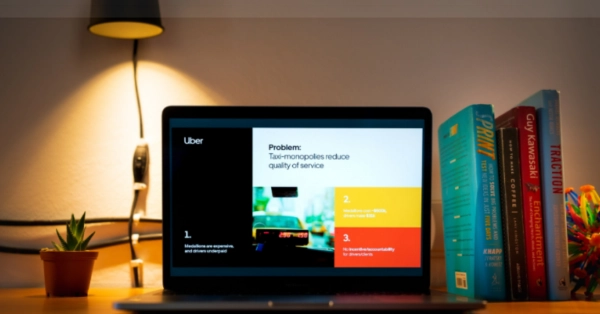A mentoring relationship can help you better understand another entrepreneur's mindset, learn from their mistakes, or discover resources you hadn't thought of. Before applying for mentoring, you should set your expectations correctly and understand what the process entails.

Roxana Mocanu, mentor in international programs for female entrepreneurship, consultant and designer of mentoring programs in Romania, says that the most important mentor she has ever had is her own son.
This is called reverse mentoring, when you learn from a younger person some things that are part only of their world. He is a harsh, very creative and very challenging mentor. In fact, mentoring is a relationship that is established between two people who are at a different level of professional or life maturity. It is an accompanying relationship, where the senior accompanies the least senior or the junior, throughout three types of transitions:
- Career/business transitions.
- Life transitions.
- Transitions in the way of thinking.
What could the career transition mean?
If until now you have been an intrapreneur, that is, you loved playing with creative and innovative ideas, in the safe environment offered by an employer, with other people's funds and with other people's resources, and now you have decided that entrepreneurship is your future path, then this is a very important transition. For this situation, you should choose a mentor who has had a similar experience.
Mentor-Mentee Relationship
The first thing I want to tell you is that the relationship is based on trust, inspiration, respect and admiration. It's a two-way learning relationship: expect to learn a lot from your mentor, but at the same time, think about what you can teach your mentor as well.
In order for your relationship to be built on trust, it doesn't matter who takes the first step, but it does matter that you keep everything you exchange in mentoring conversations confidential. It's also very important to respect each other, respect the mentor's time, and most importantly, if you want to get the most out of your mentoring relationship, always prepare for your meetings.
Stages of the mentoring relationship
Any mentoring relationship has five stages.
- The first step is opening the relationship and building trust.
- The next step is setting a direction, choosing a purpose and setting goals.
- The third step, and the most consistent part of the relationship, is progress. That means several sessions that will be dedicated to the goals you have set for yourself and getting your mentor's support to meet those goals.
- The fourth step of the mentoring relationship is closure. There are two types of closure: a formal one and one for celebrating success.
- The formal closure is a session you can have towards the end or after the formal end of the mentoring relationship where you go over the most important goals you have set, the most important achievements you had during of the mentoring relationship and move to the fifth step, what happens next.
The informal closure, as I said earlier, may also include a small celebration. You can go out with the mentor and remember all the good times, ask the mentor what they learned from you.
The mentor's expectations
What the mentor expects from you and what you are expected to do in order for you to be successful is to keep the relationship warm, make all the arrangements for the mentoring sessions, make sure they happen, communicate the meeting agenda if you have a formal relationship, commit to the goals you have set for yourself, always go to the mentoring session prepared - otherwise not much will happen in that session and the mentor will get the signal that either the goal you have previously set is no longer important, or there is a lack of respect for their time because that session will be a lost session that you are directly responsible for. So, prepare yourself before the mentoring session.
Respect each other's personal values and most importantly, maintain confidentiality. Remember that this is a relationship based on trust, and even things you may find out about your mentor or their business by chance must remain confidential.
The mentee's expectations
Let's see what you can expect from a mentor. You can expect a mentor to challenge you in a constructive, friendly way and offer you support. Expect the mentor to be a friend who listens without judging you.
As you tell your story, you will realize that things become clearer to you and the story becomes much clearer, and if at any point you experience conflicts or deadlocks, these things will be revealed and maybe you will get a solution.
You can expect your mentor to share their experience, and maybe you will be inspired and this will help you find your own solutions.
How the first mentoring meeting goes
The first mentoring meeting is the one that will probably arouse your interest and enthusiasm more than any of the others. This is probably the meeting where you will meet your mentor. You have to go prepared to meet the mentor, to find out things about them, to introduce yourself, to talk about yourself, about the business you have started or the business idea you have, the ambitions/plans you have and even some personal things, if you want to share them.
The mentoring relationship has a purpose, this purpose will be detailed together during the first meeting. In addition to the purpose, you will establish for the mentoring relationship, you will also need to set some goals. This way, you make sure that the mentoring relationship is productive and not just a regular professional friendship. It's a relationship with a precise target.
Objective of the mentoring relationship
My suggestion is to have SMART (Specific, Measurable, Achievable, Relevant, Time-bound) objectives for your mentoring relationship. This way, you will be helped to measure success along the way and at the end.
Another rule that you have to establish together is how to measure the success of every mentoring session, on the one hand, and how to measure the success of the entire mentoring relationship, on the other hand. In order to realize whether we have succeeded or not, things must become concrete, measurable.
What is very important is to be prepared to set the rules of the game, at some point. It's a glass beads game, but this is a game where we make our own rules. One of the rules you will need to agree on with your mentor is the frequency of your meetings. It is good to have frequent meetings at the beginning of the mentoring relationship, maybe every two weeks or so.
The length of a mentoring meeting can be 90, 60, 45 minutes – longer at the beginning and shorter towards the end, if you don't need that much time. You will need to think about how you will be able to get your mentor's support between your mentoring sessions so that you do not intrude on the mentor's life and abuse their time and trust.
You will definitely experience difficult times and times when you need support, so you need to figure out how you can get to talk to your mentor between your mentoring sessions.
What can happen once the mentoring relationship has come to an end? One of the nice things that can happen is you gaining a business friend. Secondly, if you still need mentoring help, you can look for it either in the Startarium network or in other mentor networks. You can now do business with your former mentor, and also, if you have learned the secrets of and acquired the taste for mentoring, you can become a mentor.
I want you to be ambitious, set beautiful hard to reach goals for yourself, and I want you to wholeheartedly celebrate success with your mentors. Romania needs strong entrepreneurs, I think there is still a lot of room to build and I am very pleased to be able to contribute as much as I can. Good luck!























